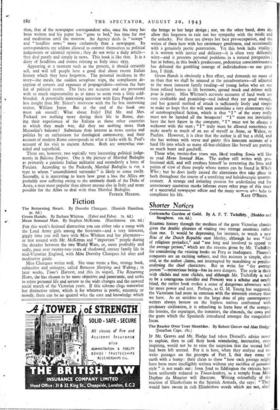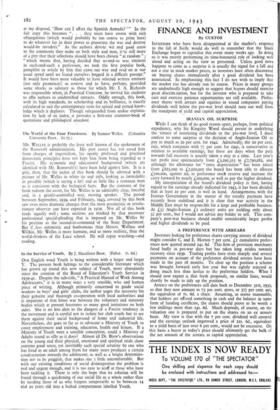(Jonathan Cape. r8s.) •
IF Mr. Graves and Mr. Hodge had taken Disraeli's advice never to explain, then to call their book stimulating, instructive, even inspiring, would not be to raise the suspicion that the second half had been left unread. For it is here, when they analyse and re- write passages on the precepts of Part I, that they come to earth with a bump : their claim to show how each passage might have been more intelligibly written without any sacrifice of personal style " is not made out : from Joad to Eddington the extracts have been uniformly reduced to Times-leaders, as a sample from Miss Daphne du Maurier will illustrate. Writing colourfully of the reaction of Elizabethans to the Spanish Armada, she says : " They would have sworn in rich Elizabethan words which are not, alas! at my disposal, ' How can I affect the Spanish Armada? ' In the fair copy this becomes " . . they must have sworn with rich objurgations (which would probably be too coarse to print here) to do whatever lay in their power to prosecute the war and destroy would-be invaders." As the authors devote wit and good sense to the comments they make on both style and man, iris still more of a pity that their selections should have been chosen " at random " ; " which means that, having decided that so-and-so was eminent in such-and-such a profession, we took the first popular book, pamphlet or article by him that came, our way and read on at our usual speed until we found ourselves bogged in a difficult passage." It would have been more valuable to have selected writers eminent (not only prominent) as writers and to have, perhaps, provided some shocks as salutary as those for which Mr. I. A. Richards was responsible when, in Practical Criticism, he invited his students to affix authors to unidentified extracts. Oddly enough, this book, with its high standards, its scholarship and its brilliance, is exactly calculated to suit the contemporary taste for spiced and potted know- ledge which it deplores. Though safeguarded from undue exploita- tion by lack of an index, it provides a first-rate crammer-book of quotations and philological anecdote.



























 Previous page
Previous page